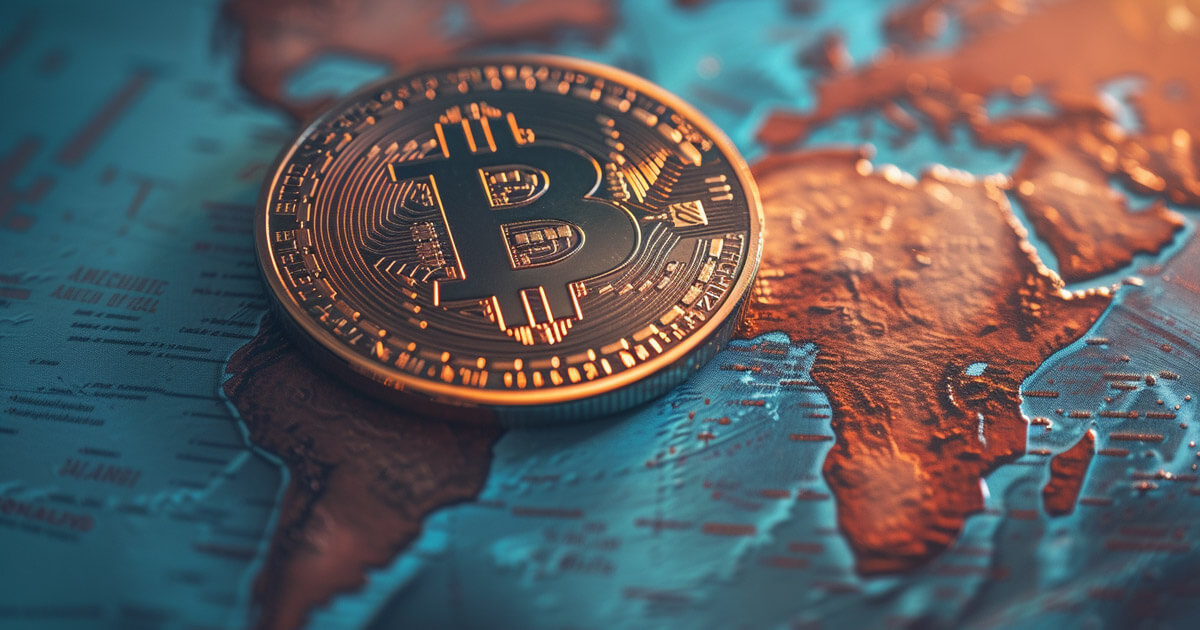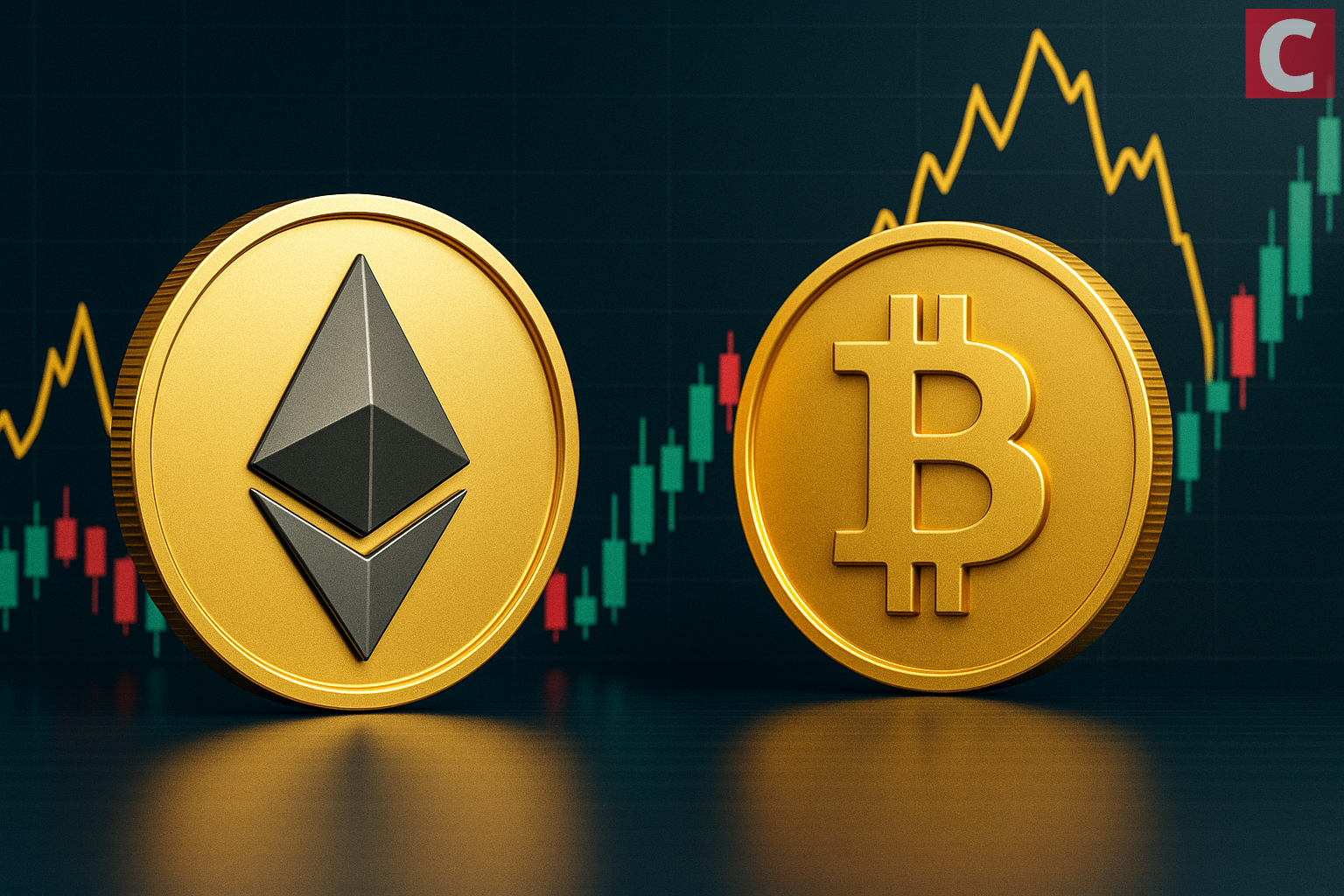Stablecoins, DeFi boost Nigeria to second in global crypto adoption rankings – Chainalysis

Nigeria has emerged as the second-largest adopter of crypto worldwide, cementing its position as a leader in digital finance, according to Chainalysis’ upcoming report.
The ranking illustrates Nigeria’s rapidly expanding crypto ecosystem, where everyday transactions, remittances, and business payments increasingly rely on digital assets, especially stablecoins. The country’s success mirrors a broader trend in Sub-Saharan Africa, a region witnessing modest yet significant growth in its crypto adoption.
According to Chainalysis, Sub-Saharan Africa’s burgeoning crypto economy, driven by the need for alternative financial services and more accessible international markets, is positioning the region as a growing hub for innovation and financial inclusion on the global stage.
Steady growth across Sub-Saharan Africa
Despite representing only 2.7% of global transaction volume, Sub-Saharan Africa received $125 billion in on-chain value between July 2023 and June 2024, marking a $7.5 billion increase compared to the previous year.
While the region’s contribution to the global crypto economy remains small, its influence is growing as several African nations emerge as key players in the crypto space. Other African nations, including Ethiopia, Kenya, and South Africa, have all secured spots in the top 30 on the Chainalysis Global Adoption Index.
Moyo Sodipo, COO and co-founder of Nigerian crypto exchange Busha, said:
“Nigeria’s high adoption rates show how practical crypto has become for everyday transactions.”
Sodipo noted that many Nigerians are turning to crypto for bill payments, mobile credit top-ups, and cross-border transfers as the traditional financial system struggles with inflation and currency devaluation.
The report also highlighted Sub-Saharan Africa’s leadership in DeFi adoption. DeFi platforms allow users to access financial services, such as lending and borrowing, without needing traditional banks, which remain out of reach for many.
The World Bank estimates that only 49% of adults in the region had access to a bank account as of 2021, making crypto an attractive alternative for millions.
Stablecoins drive economic stability
Stablecoins are pivotal in Sub-Saharan Africa’s crypto economy, with Chainalysis estimating that they account for 43% of the region’s total crypto transactions. These dollar-pegged digital currencies have gained significant traction in countries where local currencies are volatile and access to US dollars is limited.
In Nigeria, businesses and individuals increasingly rely on stablecoins like USDT and USDC to protect their assets from the local fiat currency’s ongoing devaluation. The country’s foreign exchange shortage has further intensified the demand for stablecoins, enabling companies to conduct international trade that would otherwise be hindered by currency shortages.
Chris Maurice, CEO of African crypto exchange Yellow Card, said:
“The banks don’t have dollars, the government doesn’t have dollars, and even if they did, they wouldn’t give them to you.”
He explained that stablecoins serve as a reliable alternative for businesses involved in international trade, from small-scale importers to large multinational corporations.
Ethiopia, the region’s fastest-growing market for stablecoin use, has seen a 180% year-over-year increase in retail-sized stablecoin transfers. This surge follows a 30% devaluation of Ethiopia’s local currency, the birr, as the government relaxed currency restrictions in exchange for a $10.7 billion loan from the IMF and World Bank.
Stablecoins are also revolutionizing cross-border payments across Africa. Remittances, a vital source of income for many African households, have become significantly cheaper and faster using stablecoins compared to traditional fiat currency methods.
In Nigeria alone, stablecoin transactions under $1 million nearly reached $3 billion in early 2024, demonstrating their growing importance for small and medium-sized transfers.
Crypto and financial inclusion
As Nigeria and other Sub-Saharan nations deepen their engagement with crypto, stablecoins are expected to play a central role in stabilizing economies, facilitating international trade, and enabling cross-border payments.
South Africa, with its rapidly growing institutional activity and TradFi integration, stands poised to be another key driver of crypto adoption in the region.
Rob Downes, head of digital assets at Absa Bank in South Africa, said:
“Nigeria and South Africa are leading the way in showing how crypto can drive financial inclusion.”
The post Stablecoins, DeFi boost Nigeria to second in global crypto adoption rankings – Chainalysis appeared first on CryptoSlate.
Stablecoins, DeFi boost Nigeria to second in global crypto adoption rankings – Chainalysis

Nigeria has emerged as the second-largest adopter of crypto worldwide, cementing its position as a leader in digital finance, according to Chainalysis’ upcoming report.
The ranking illustrates Nigeria’s rapidly expanding crypto ecosystem, where everyday transactions, remittances, and business payments increasingly rely on digital assets, especially stablecoins. The country’s success mirrors a broader trend in Sub-Saharan Africa, a region witnessing modest yet significant growth in its crypto adoption.
According to Chainalysis, Sub-Saharan Africa’s burgeoning crypto economy, driven by the need for alternative financial services and more accessible international markets, is positioning the region as a growing hub for innovation and financial inclusion on the global stage.
Steady growth across Sub-Saharan Africa
Despite representing only 2.7% of global transaction volume, Sub-Saharan Africa received $125 billion in on-chain value between July 2023 and June 2024, marking a $7.5 billion increase compared to the previous year.
While the region’s contribution to the global crypto economy remains small, its influence is growing as several African nations emerge as key players in the crypto space. Other African nations, including Ethiopia, Kenya, and South Africa, have all secured spots in the top 30 on the Chainalysis Global Adoption Index.
Moyo Sodipo, COO and co-founder of Nigerian crypto exchange Busha, said:
“Nigeria’s high adoption rates show how practical crypto has become for everyday transactions.”
Sodipo noted that many Nigerians are turning to crypto for bill payments, mobile credit top-ups, and cross-border transfers as the traditional financial system struggles with inflation and currency devaluation.
The report also highlighted Sub-Saharan Africa’s leadership in DeFi adoption. DeFi platforms allow users to access financial services, such as lending and borrowing, without needing traditional banks, which remain out of reach for many.
The World Bank estimates that only 49% of adults in the region had access to a bank account as of 2021, making crypto an attractive alternative for millions.
Stablecoins drive economic stability
Stablecoins are pivotal in Sub-Saharan Africa’s crypto economy, with Chainalysis estimating that they account for 43% of the region’s total crypto transactions. These dollar-pegged digital currencies have gained significant traction in countries where local currencies are volatile and access to US dollars is limited.
In Nigeria, businesses and individuals increasingly rely on stablecoins like USDT and USDC to protect their assets from the local fiat currency’s ongoing devaluation. The country’s foreign exchange shortage has further intensified the demand for stablecoins, enabling companies to conduct international trade that would otherwise be hindered by currency shortages.
Chris Maurice, CEO of African crypto exchange Yellow Card, said:
“The banks don’t have dollars, the government doesn’t have dollars, and even if they did, they wouldn’t give them to you.”
He explained that stablecoins serve as a reliable alternative for businesses involved in international trade, from small-scale importers to large multinational corporations.
Ethiopia, the region’s fastest-growing market for stablecoin use, has seen a 180% year-over-year increase in retail-sized stablecoin transfers. This surge follows a 30% devaluation of Ethiopia’s local currency, the birr, as the government relaxed currency restrictions in exchange for a $10.7 billion loan from the IMF and World Bank.
Stablecoins are also revolutionizing cross-border payments across Africa. Remittances, a vital source of income for many African households, have become significantly cheaper and faster using stablecoins compared to traditional fiat currency methods.
In Nigeria alone, stablecoin transactions under $1 million nearly reached $3 billion in early 2024, demonstrating their growing importance for small and medium-sized transfers.
Crypto and financial inclusion
As Nigeria and other Sub-Saharan nations deepen their engagement with crypto, stablecoins are expected to play a central role in stabilizing economies, facilitating international trade, and enabling cross-border payments.
South Africa, with its rapidly growing institutional activity and TradFi integration, stands poised to be another key driver of crypto adoption in the region.
Rob Downes, head of digital assets at Absa Bank in South Africa, said:
“Nigeria and South Africa are leading the way in showing how crypto can drive financial inclusion.”
The post Stablecoins, DeFi boost Nigeria to second in global crypto adoption rankings – Chainalysis appeared first on CryptoSlate.

